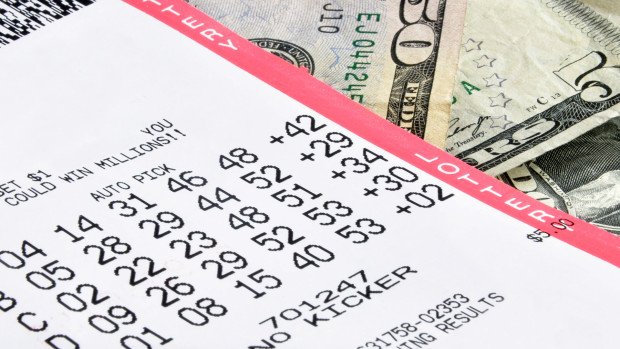
After nearly three months and more than 30 rollovers, lottery officials in Los Angeles announced that a small downtown mini market sold the winning ticket worth $1.08 billion.
While the buyer is yet to step up and claim what is currently the third-largest jackpot in Powerball history, many have been opining about just how much this person's life is about to change.
DON'T MISS: Mark Cuban Says This Popular Career Advice Is Completely Wrong
Even though the larger jackpot number is often thrown around in news headlines, receiving that much would require spreading the winnings out in annuity payments over 30 years — historically, the majority of winners have chosen to get half in an immediate lump sum payment. (For this Powerball winner, that would come out to $558.1 million that would also be taxed at a 24% withholding rate as well as a later marginal federal rate and state taxes.)

Mark Cuban Advises Powerball Winner
CNBC was the first to recall a time when, in January 2016, the $1.6 billion Powerball drawing produced three winning tickets in California, Florida and Tennessee.
At the time, ABC's "Shark Tank" star and billionaire investor Mark Cuban told the Dallas Morning News that the winner should "not take the lump sump" — not just because of the lower amount of money one gets overall but also because immediately coming into this much wealth could lead one to underestimate what one can do with several hundred thousand dollars after taxes.
"You don't want to blow it all in one spot," Cuban told the news outlet.
Indeed, the National Endowment for Financial Education has previously released numbers showing that up to 70% of lottery winners power through their winnings and go broke within just a couple of years due to overestimating spending power and not knowing how to handle their wealth.
One of many such examples would be West Virginia resident Jack Whitaker — while already a multi-millionaire from founding a local construction company, he went broke four years after winning the $315 million jackpot in 2002. At one point, he was carrying around $545,000 in cash near a strip club and was robbed of it by car thieves.
Why Lottery Winners Can Make Poor Investments
In other cases, some winners immediately started investing to anyone who promised a return and went broke due to poor financial sense and knowledge.
According to Cuban, those without experience investing would be better off guaranteeing their future well-being instead of trying to maximize it — ideally, by hiring a tax attorney and wealth manager to help one from making rash decisions.
"You don't become a smart investor when you win the lottery," Cuban said in 2016. "Don't make investments. You can put it in the bank and live comfortably. Forever."
While far from being able to bring home $1.08 billion, the owner of the mini-mart that sold the winning ticket will also come into significant wealth — Maria Leticia Menjivar, who owned the store in Las Palmitas for the last seven years, will receive a check for $1 million as the prize for selling it. Just as with the Powerball winnings, this would also immediately place one into the highest-earning tax bracket.
"We are so happy," Menijvar's daughter Angie told news outlets. "We are more happy for the winner."







